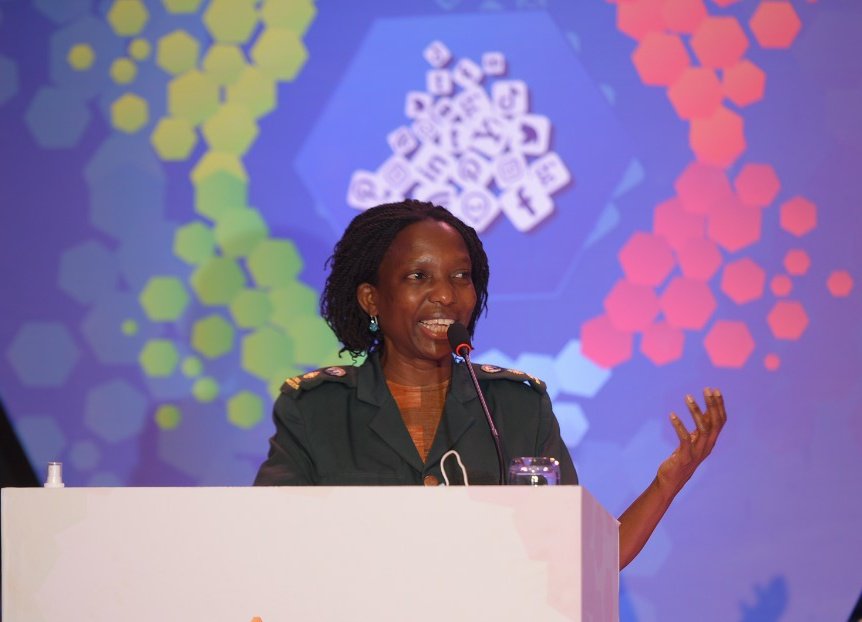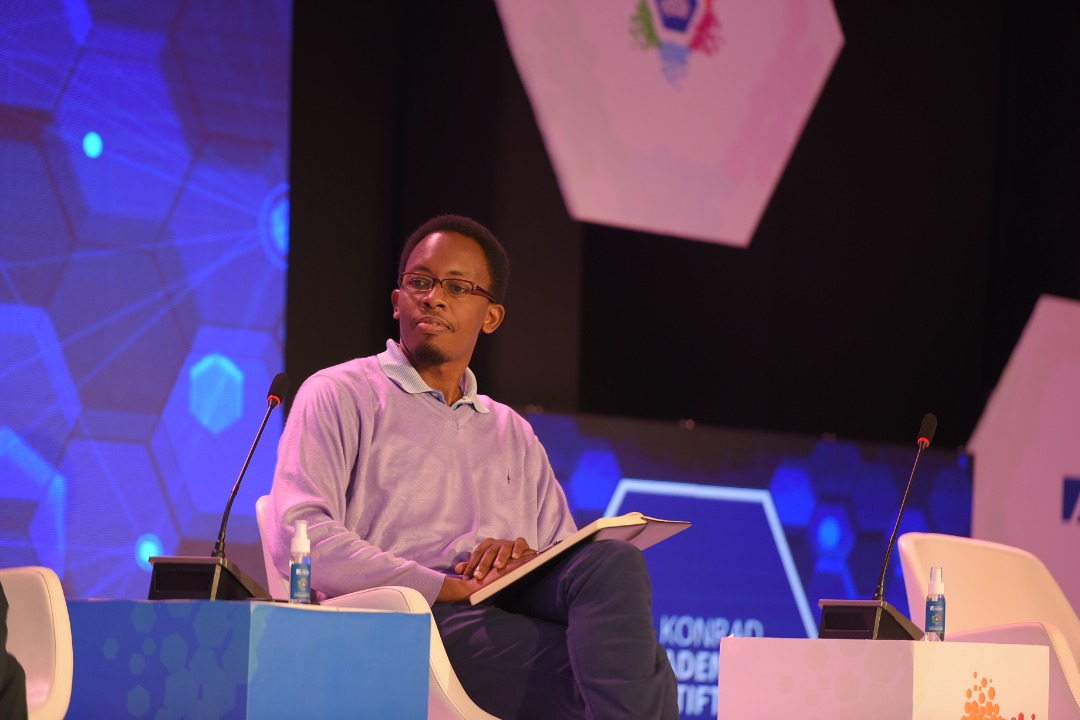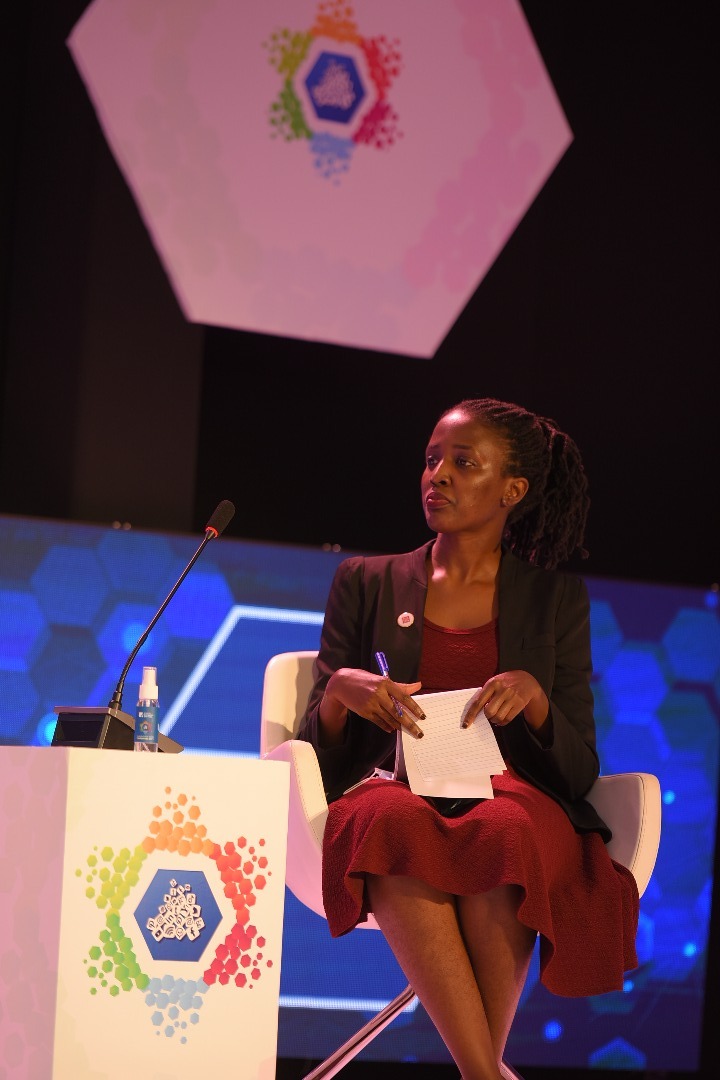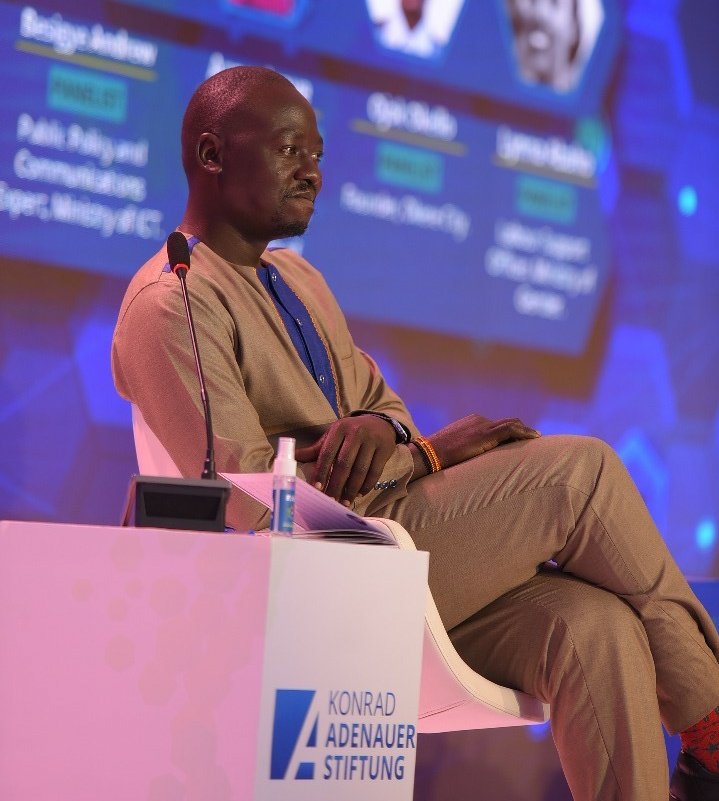
KAMPALA —Discussions to better online spaces, data protection and safety have featured prominently at Social Media Conference by Konrad Adenauer Stiftung (KAS), with experts cautioning youths to be vigilant of fraud activities on social media platforms.
The annual conference, now in its sixth year was held online in respect of the coronavirus containment protocols.
The two-day event started on Wednesday August 25 to Thursday August 26—running under the theme “Digital democracy in a Post Pandemic World”.
Deliberations from the main panel and break-away sessions were rife with questions about the dominance of social media and its influence on the youth.
Mr. Andrew Besigye, a Public Policy and Communications Expert at the Ministry of Information, Technology and Communication says social media platforms have proven to be a scarily efficient means of propagating disinformation and sowing division.
“We’ve to be authentic and share facts when indulging into a conversation. The habit of glorifying fake news needs to be curbed,” Besigye said—noting that the government has commissioned a fake news desk at the Ministry of ICT to always flag fake news when it comes.

Besigye expressed concern —saying that because the youths want all sorts of good life, they have become easy targets of online fraud including extremism and trafficking.
“Because young people want all sorts of good life, they become easy targets. It is easy to paint a rosy picture for them which the traffickers can now take advantage of,” he said.
Ms. Agnes Igoye, the Deputy National Coordinator Anti-Trafficking – Directorate of Immigration urged the youth to always do due diligence on the person(s) they are interacting with online.
“The digital space is getting insecure each and every day,” Igoye said.
“As you meet, socialize and date online, please first do due diligence on the person(s) you’re interacting with. Traffickers use online platforms to trap internet users who end up as victims,” she added.
During the lead panel discussion on tackling emerging digital threats: extremism, trafficking and radicalization, Lynna Abaho, a Labour Support Officer at the Ministry of Gender, Labour and Social Development called for an intergovernmental collaboration to tackle trafficking.
“Trafficking isn’t only happening in Uganda. What does the Ugandan government have in place with other countries to ensure that this is stopped? She wondered.

Abaho said traffickers are targeting the young generation because they spend so much time online and there are so many scam opportunities there.
“There is a whole process at the Ministry of Foreign Affairs that must be followed if you want to go out for any purpose. Once you follow the right channels, the Ministry is accountable for you,” she added.
According to the Trafficking in Persons Report from 2020, estimates determined that traffickers are currently exploiting 7,000 to 12,000 children through sex trafficking in Uganda.
The report also outlines how human trafficking in Uganda primarily takes the form of forced physical labor and sexual exploitation.
Uganda lacks employment opportunities, quality education and social welfare systems to aid the nation’s young population.
The lack of opportunities and access to resources has left young Ugandans especially the vulnerable to look for opportunities online
Most young Ugandans emigrants go to the Gulf States to work as laborers, security officers, construction workers and other forms of untrained labor, putting them at risk of human trafficking syndicates.

Humanitarian and Entrepreneur Ojok Okello said rural communities and classified minority groups should be heavily involved in such discussions so that they can be aware of threats and protect themselves from being victims of trafficking, violence, extremism and radicalization.
“I noticed that if rural communities and other excluded minorities are not part of these discussions, they will continue to be marginalized. They then become hot spots for radicalization,” Okello said.
The criminal justice system in Uganda is not adequately prepared to handle international crimes of this scope and nature.
Ms. Abaho said the special expertise and the cooperation of the international community are necessary to apprehend and bring to justice human traffickers and their accomplices.
Currently, Uganda has not met the minimum requirements to eliminate human trafficking but experts say the country has made significant efforts to do so.
Ms. Igoye revealed that necessary measures for Uganda to eliminate human trafficking are varied.
They include greater scale and intensity of federal investigations into human trafficking and a focus on prosecuting traffickers on the judicial side.
Outside of criminal justice, she said government is assisting survivors of human trafficking and allocating resources to NGOs that provide protective services to populations vulnerable to trafficking are both crucial to ameliorate the damage that human trafficking has done.
To successfully combat the menace of human trafficking, experts recommended that Ugandan government must prioritize both survivor resources and relentless prosecution of human traffickers.
Panelists and participants addressed various topics including,
Citizen Journalism vs digital newsrooms, climate change agenda on social media, impact of social media on mental health among others.
Ms. Ann Reismann, KAS Country Director for Uganda and South Sudan aid this year’s conference offered a platform to discuss the political, societal and the journalistic implications of social media and how it changes the way information is produced, consumed and perceived.
The virtual conference was attended by members of the academia, civil society, bloggers, journalists, politicians and policy makers







